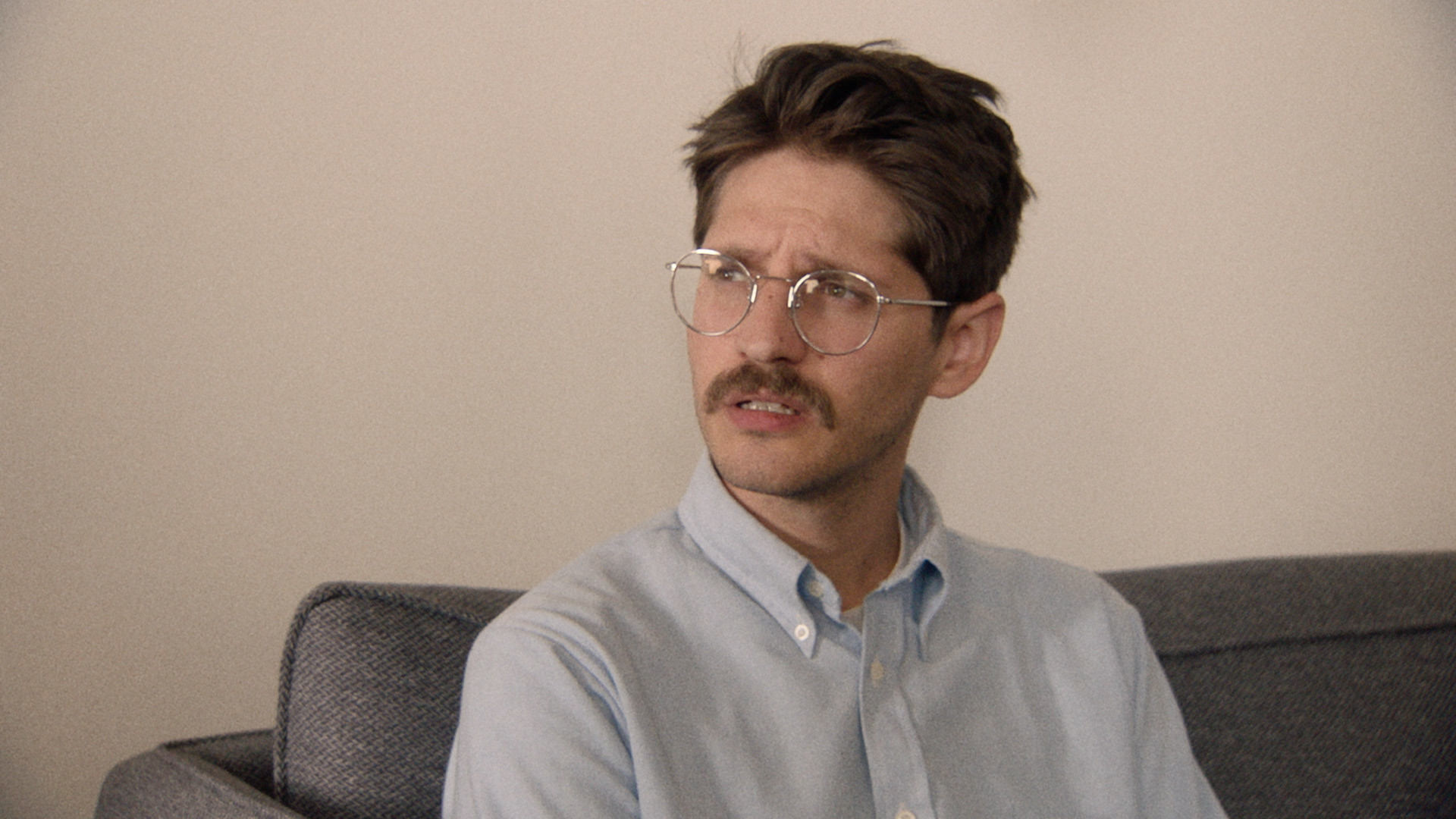




In Radu Jude’s latest satire, 'Do Not Expect Too Much From the End of the World,' the Romanian writer-director assaults the viewer with many of modern life’s indignities: gridlocked traffic, rampant misogyny, economic inequality, corporate exploitation, and the far-right trolls on social media [d0d9ea4f]. The movie chronicles the story of Angela, a burnt-out millennial production assistant, as she navigates the gig economy and interviews laborers who severely injured themselves on the job due to their own negligence, filming their cautionary tales so that her superiors can decide who is most deserving of being featured in a workplace-safety PSA [3f090d6f]. The film toys with the disconnect between image and reality, as Angela meets with the maimed workers who tailor their testimonials to what they think will be most appealing to the corporation. The movie also juxtaposes Angela’s travails with another Angela stuck behind the wheel in the 1981 Romanian film 'Angela Moves On,' reflecting on Romania’s past and the gig economy [3f090d6f]. The film is a volatile mixture of comedy, drama, and narrative impishness, capturing the chaos of the 21st century. The protagonist's character's cleansing disgust exudes the thorny defiance so many of us recognize as a principled protest to insurmountable economic, social, and political ills. The film advocates releasing vitriol by laughing at the corruption and poisonous self-absorption Angela witnesses. As the film reaches its brilliant finale, it doubles down on its satire of consumerism and reflects on the ways people inoculate themselves from harsh truths in order to enjoy a false, sunnier version of life. The film offers a jolting remedy, arguing that the world is ending and it can't get here soon enough.
Ryan Martin Brown's feature debut, 'Free Time,' captures the trials and tribulations of twenty-something waywardness rooted in economic realities [93e2e834]. The film explores the concept of 'the Great Resignation' and offers keen observations on what it means to have a creatively satisfying life. The film stars Colin Burgess, Rajat Suresh, Holmes, James Webb, Eric Yates, Jessie Pinnick, and Rebecca Bulnes. Brown developed the script as a writing exercise and decided to make it his debut feature. The film's comedy is influenced by Colin Burgess' comedic sensibility and films like 'The Heartbreak Kid.' The ensemble cast was chosen based on their comedic talent, and the shoot was challenging due to the limited time and budget. Brown believes that the constraints of a micro-budget production added to the spirit of the project. He sees a fruitful indie filmmaking movement in NYC, centered around Kentucker Audley's NoBudge. The film resonates with the economic realities of today, as many people feel that something is wrong with the current system. The ending of the film takes a narrative leap and goes beyond strict reality, inspired by films like 'The Heartbreak Kid.' Brown learned that it is possible to make a film with a small team and limited resources, and he advises aspiring filmmakers to start small and prioritize collaboration. [93e2e834]
The film 'Do Not Expect Too Much From the End of the World' is a satirical exploration of contemporary image-making and corporate capitalism. Directed by Radu Jude, the film follows Angela, a burnt-out millennial production assistant, as she navigates the gig economy. The film is filled with wild aesthetic detours and explores themes of labor rights and the influence of corporate money. It incorporates footage from a 1981 Romanian film, 'Angela merge mai departe,' which adds another layer of complexity to the narrative. The film is a self-reflexive media satire that draws inspiration from the French New Wave and modern media platforms like TikTok. It challenges traditional notions of cinematic time, space, and rhythm through its use of jump cuts and unconventional editing techniques. 'Do Not Expect Too Much From the End of the World' is a character comedy that critiques the state of contemporary media and image-making. [3f090d6f]
Filmmaker Radu Jude's film 'Do Not Expect Too Much from the End of the World' is a satirical critique of modern capitalism and human disappointment. The film follows Angela, a production assistant at a film production company in Bucharest, as she navigates her workday and interviews injured factory employees for a workplace safety video. Angela transforms herself into a character named Bobita using a gender-swapping filter, mocking real-life figures. The film combines humor and seriousness, highlighting the ethical issues in the workplace and the impact of capitalism. 'Do Not Expect Too Much from the End of the World' is a bracing and chaotic film that offers a unique perspective on contemporary society. [813e1e13]
The prevalence of anxiety and doomsday predictions in modern society is explored in an article titled 'To Radicals, Every Day is Doomsday' by Paul J. Batura [13549be4]. The article discusses how anxiety, often reflected in children, can stem from the anxieties of their parents. It criticizes climate activists for consistently making dire predictions that have not come true and points out that life on Earth has actually improved in many ways. The article also highlights the irony of secularists being the ones promoting doomsday scenarios, while Christians are often stereotyped as the ones stoking anxiety. It concludes by emphasizing the importance of managing anxiety and finding peace in faith. The article offers a different perspective on the anxieties and doomsday predictions prevalent in society, adding depth to the context of the satire film 'Do Not Expect Too Much From the End of the World' [d0d9ea4f].